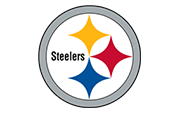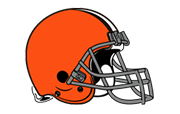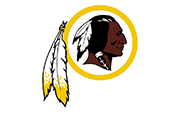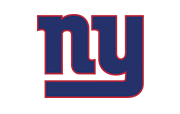There are a lot of similarities between Pennsylvania’s two major cities. Both Philadelphia and Pittsburgh, onetime manufacturing hubs, have been enjoying a downtown renaissance fueled largely by Millennials, while still struggling with long-term urban challenges.
Let’s dive into the numbers below. First, when it comes to diversity, remember, the lower your diversity score, the more diverse you are. And when you explore Census numbers, you see that, while Philadelphia and Pittsburgh are both overwhelmingly white and black cities, Philadelphia has more racial balance. Pittsburgh is roughly 65 percent white and 25 percent black, whereas we’re closer to 45 percent white and 45 percent black, with a larger Latino population.
Economically, Philly and Pittsburgh have much in common. “The biggest employers are mostly healthcare, education, and government,” says Professor Richardson Dilworth of Drexel’s Center for Public Policy. “Of course, that’s a good thing—the healthcare and education sectors are no doubt what’s helping to save both places.”
But there are still some significant differences. Philadelphia is a much bigger city with more poor people than Pittsburgh, which helps explain our higher crime and lower graduation rates. “Pittsburgh has had terrible population loss,” explains Dilworth. “Since 1950, Philly lost about one quarter of its residents and Pittsburgh lost half of its population. It is today a pretty small city of just over 300,000.”
Typically, as we saw when we played Cleveland, great population loss translates into greater poverty and all its attendant problems. So why hasn’t Pittsburgh suffered as many ill effects given its drastic downsizing?
“I think Pittsburgh was partially saved by its strong anchor institutions,” Dilworth says. “Not just the University of Pittsburgh and Carnegie Mellon University, but also the H.J. Heinz Company and Mellon Bank, which is still one of the city’s top employers. All are major civic leaders.”
Pittsburgh’s Idea We Should Steal: Smart Planning for Public Transportation
While we outscore Pittsburgh in our public transportation score, that is solely a measure of the accessibility of our existing transit system. It does not weigh in on how well or poorly we’re planning for the future, which, given the problems recently with our regional rail fleet, is a point of challenge for Philadelphia.
But not for the Steel City. “Pittsburgh has become a national leader in thinking about the future of transportation, largely through collaborations between the city and Carnegie Mellon University,” says Dilworth. He points to efforts like Carnegie Mellon’s Traffic21 Institute, a “learning lab” that designs, tests, deploys and evaluates transportation innovations in the Pittsburgh region that can be applied around the nation and globe.
And, while Philadelphia has received Transportation Investment Generating Economic Recovery—or TIGER—grants for infrastructure improvements from the Department of Transportation, that money has mostly been used for traditional projects like Dilworth Park and the removal of old rail lines from city streets. Pittsburgh Mayor Bill Peduto’s emphasis on high-tech plans to rethink how we move around urban areas, on the other hand, led to his city being chosen as a finalist in the US Department of Transportation Smart City Challenge, a $50 million award to the city that most creatively reimagines its transportation system.
Finally, the influence of Carnegie Mellon, combined with a welcoming political class, also had a lot to do with Uber choosing Pittsburgh as the nation’s first test bed city for its autonomous vehicles. Peduto, a practitioner of what has come to be known as “Greenlight Governing,” has given Uber free reign to use his city’s streets for its experimentations. “It’s not our role to throw up regulations or limit companies like Uber,” Peduto recently told The New York Times. “You can either put up red tape or roll out the red carpet. If you want to be a 21st Century laboratory for technology, you put out the carpet.”
We’re off next week, and then it’s on to my hometown, the Motor City, to take on Detroit.
Connor Barwin is the Eagles defensive end and runs the Make The World Better foundation, which works to refurbish city parks.
Results

PhiladelphiaEagles |
|

PittsburghSteelers |
|
# of B Corporations
27 |
7 POINTS
Eagles |
# of B Corporations
4 |
|
% Graduated high school in last school year
65 |
7 POINTS
Steelers |
% Graduated high school in last school year
77.4 |
|
Diversity Index
0.34 |
7 POINTS
Eagles |
Diversity Index
0.49 |
|
% Bike to work
1.9 |
7 POINTS
Steelers |
% Bike to work
2.0 |
|
% Acres of park space
13 |
7 POINTS
Eagles |
% Acres of park space
8.4 |
|
Violent crime per 1,000 residents
10.2 |
7 POINTS
Steelers |
Violent crime per 1,000 residents
8.0 |
|
% Voted in last mayoral election
25.5 |
7 POINTS
Eagles |
% Voted in last mayoral election
20.5 |
|
% Below poverty
26 |
7 POINTS
Steelers |
% Below poverty
23.8 |
|
Public transportation score
67 |
7 POINTS
Eagles |
Public transportation score
54 |
|
Final Score
35 |
Philadelphia
Eagles |
Final Score
28 |
Sep. 11 |
63-0
Eagles |

Browns |
Sep. 19 |
28-35
Bears |

Bears |
Sep. 25 |
35-28
Eagles |

Steelers |
Oct. 09 |
63-0
Eagles |

Lions |
Oct. 16 |
28-35
Redskins |

Redskins |
Oct. 23 |
28-35
Vikings |

Vikings |
Oct. 30 |
35-28
Eagles |

Cowboys |
Nov. 06 |
14-49
Giants |

Giants |
Nov. 13 |
56-7
Eagles |
Falcons |
Nov. 20 |
35-28
Eagles |

Seahawks |
Nov. 28 |
35-28
Eagles |

Packers |
Dec. 04 |
35-28
Eagles |

Bengals |
Dec. 11 |
28-35
Redskins |

Redskins |
Dec. 18 |
49-14
Eagles |

Ravens |
Dec. 22 |
14-49
Giants |

Giants |
Civic Record:
EAGLES |
Wins
9 |
Losses
4 |
Upcoming Games:
For more information on this data, see the Civic Season Explained page.
Note: The Eagles play Washington, D.C., New York and Dallas twice this season, but we only count each city once in the Civic Record.


